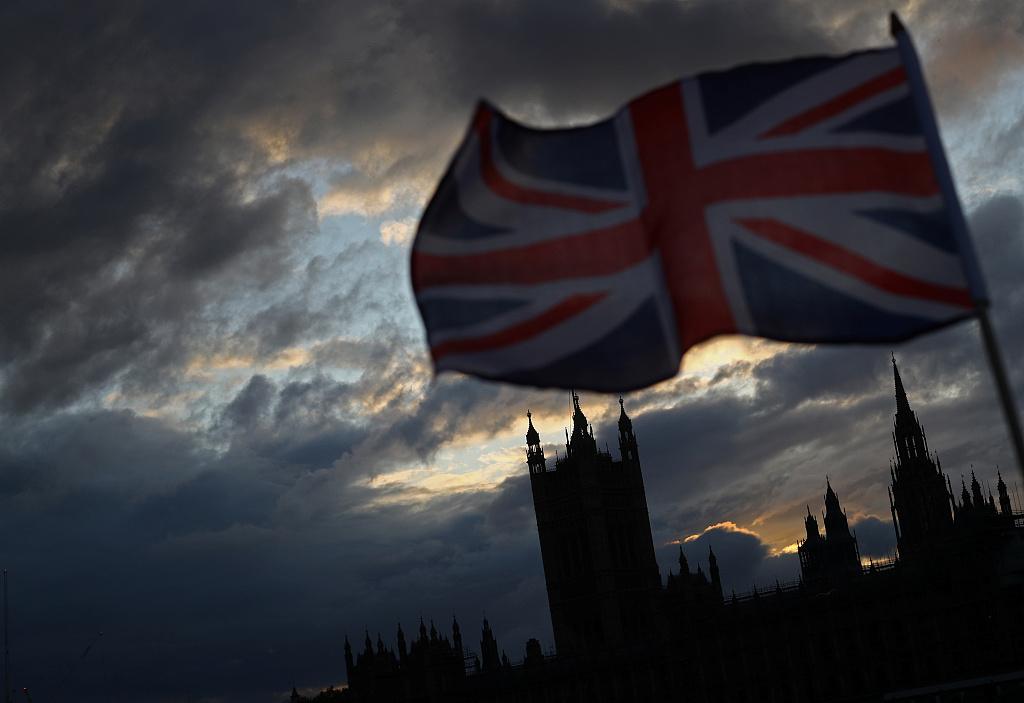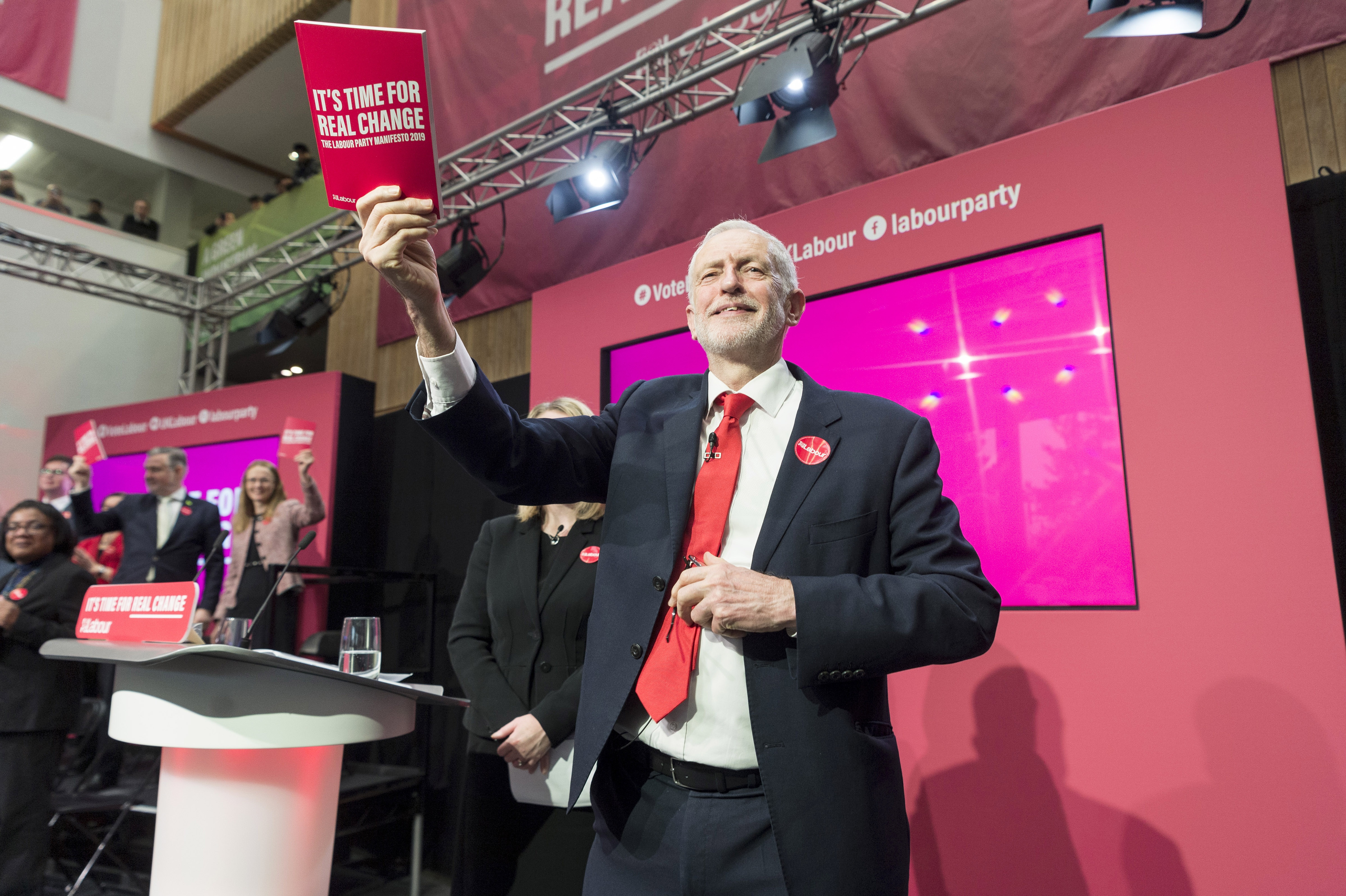Labor's economic Manifesto, crisis and opportunity
- By Michael Roberts and Heiko Khoo
 0 Comment(s)
0 Comment(s) Print
Print E-mail China.org.cn, November 28, 2019
E-mail China.org.cn, November 28, 2019

Whichever party wins the U.K. elections on December 12 will face immense challenges. The economy is in trouble and society faces multiple conflicts. Under the Conservative/Liberal Democrat governments, public services and welfare provision were slashed in ten years of austerity. Wealth and income inequality is now at 1930s levels; while Britain has 135 billionaires, 14 million people are officially classed as living in poverty. The country is also bitterly divided over Brexit, Scottish independence, the fate of Northern Ireland and immigration.
Britain's national output growth is slowing as its population expands. Profits and housing prices have risen, the stock market has boomed, but much of its population are suffering. Real disposable incomes have stagnated since 2008, the longest period in 167 years.
Investment by big business is contracting, partly due to Brexit uncertainty but also because investors don't expect good returns on British investments. Falling investment means low productivity growth and therefore slow growth overall.
Output per hour rose just 1.4% between 2007 and 2016. In the G7, only Italy performed worse (-1.7%), other member nations experienced a 7.5% productivity increase, led by the U.S., Canada and Japan. The difference between output per hour in 2016 and its pre-crisis trend in Britain is minus 15.8%; the same productivity gap for other G7 countries is minus 8.8%.
Britain is more of a "rentier economy" concentrated on finance, property and business services than any other major economy. The financial and speculative sector centered on the City of London did little to support U.K. small and medium businesses after 2008. Instead, bank loans poured into real estate thereby driving prices up and exacerbating the housing crisis. The total value of loans outstanding to companies engaged in the buying, selling and renting of real estate now equals 6.9% of Britain's GDP. By contrast, bank loans to manufacturing, professional, scientific and technical activities, information and communication, and administrative and support services account for just 5.5% of GDP, even though these productive sectors account for 28.7% of real GDP.
The Labor party's election Manifesto takes up this challenge. The key underlying issue is to increase investment in more productivity-enhancing projects with a highly-paid and skilled workforce. This Manifesto is the boldest since 1945. Its Green New Deal aims to direct resources towards renewable power generation and energy conservation projects and links this to training for related employment. It also calls for the public ownership of key energy and water companies, rail and bus services, and the Royal Mail, as well as the broadband division of British Telecom. Labor promises universal super-fast Internet for free within ten years. The largest companies will be compelled to give workers shares as well as worker representation on governing boards. Labor will expand public investment to compensate for private sector failure. A Strategic Investment Board will coordinate R&D, commercial services and information flows. And a state investment bank will invest £25 billion a year and a new banking service for small businesses will be rolled out.

Labor plans to increase income tax on the top 5% of earners (over £80,000 a year); and it will clamp down on tax avoidance by businesses and the rich – estimated at £25 billion a year. Labor will also increase government borrowing for spending on health, education and long-term projects. With interest rates at its lowest in 60 years, borrowing costs will add little to the budget. Also, planned investments should increase productivity and growth and thereby raise tax revenues. The cost of nationalizing energy, rail, water and telecoms should be covered from the revenue generated within seven years.
This would take the size of government expenditure as a share of total annual spending to around 45% of GDP, which is in the middle range for OECD economies.
Can this plan produce a more prosperous, equal and united society? There are three core issues to consider.
A single state bank and investment board may not be enough to reshape the rentier economy into a productive one, as the big five banks, major insurance companies and pension funds will remain in private hands. These sources provide the funds for 15% of GDP compared to the state's 4%. That will hamper a Labor government in delivering real improvements in investment, services and incomes. Labor's tax redistribution measures are actually quite limited. They plan to raise the annual increase on spending on the NHS by 4% a year – less than it was under the last Labor government. The second problem is the hostility from big business and the media to Labor's plans. They will try to block and reverse them. The victory of a radical Labor government may provoke financial sabotage – "capital flight," a run on the currency, and interest rate hikes, forcing the government to impose capital controls.
The third and most important problem is the threat of a new global slump in production, investment and employment. The major economies are slowing significantly and the current uncertainty in the global business environment is undermining world trade growth. However, the impact of a major recession could be lessened if Labor takes the commanding heights of the economy into public ownership and develops a national plan driven by state investment.
Heiko Khoo is a columnist with China.org.cn. For more information please visit:
http://china.org.cn/opinion/heikokhoo.htm
Michael Roberts is a London based Marxist economist. He published the "The Great Recession" in 2008 and "Essays on Inequality" in 2014.
Opinion articles reflect the views of their authors, not necessarily those of China.org.cn.
If you would like to contribute, please contact us at opinion@china.org.cn.





